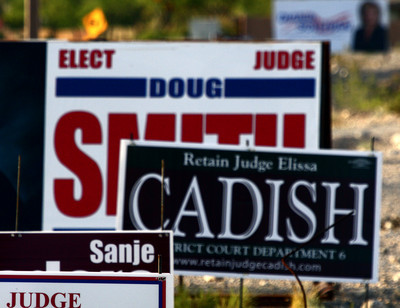« November 09, 2008 - November 15, 2008 | Main | November 23, 2008 - November 29, 2008 »
November 22, 2008
U.S. News & World Report: "The best schools in the world"?

'Hyperbole' means what? Should Dartmouth College (no. 54), just behind University of Wisconsin-Madison (no. 55), wish to lodge an appeal, we're available for a song. Call us, James Wright. According to USN&WR, of the 200 "best" colleges and universities "in the world", the "Top 25" are:
1. Harvard (U.S.)
2. Yale (U.S.)
3. Cambridge (U.K.)
4. Oxford (U.K.)
5. Cal Tech (U.S.)
6. Imperial College London (U.K.)
7. University College London (U.K.)
8. Chicago (U.S.)
9. MIT (U.S.)
10. Columbia (U.S.)
11. Penn (U.S.)
12. Princeton (U.S.)
13. Duke (U.S.)
14. Johns Hopkins (U.S.)
15. Cornell (U.S.)
16. Australian National University (Australia)
17. Stanford (U.S.)
18. Michigan (U.S.)
19. Tokyo (Japan)
20. McGill (Canada)
21. Carnegie Mellon (U.S.)
22. King's College London (U.K.)
23. Edinburgh (U.K.)
24. ETH Zurich (Switzerland)
25. Kyoto (Japan)
(Photo: Universal Studios)
Posted by Holden Oliver (Kitzbühel Desk) at 10:29 PM | Comments (0)
November 21, 2008
"I'm good enough, smart enough, close enough."
Forget your politics. Norm Coleman isn't fun. And Franken's (gulp) just smarter than Norm, when Al is calm. Finally, this Minnesota U.S. Senate race annoys the right people. Think of it as a cattle prod. The Hill: "Franken narrows Coleman lead in Recount".
Posted by Holden Oliver (Kitzbühel Desk) at 09:15 PM | Comments (0)
In any year, just firms--not sophisticated clients--should care about associate bonuses.

Permanently Happy Useful Associates are the rarer younger lawyers you paid higher bonuses to who are straight-up kick-ass, energetic and mega-talented wunderkinds you can't practice law without; you want to be partners with them some day. They did better than their peers at work. ("I like the cut of your jib, Sally.")
Three days ago, Above The Law drew more than its usual avalanche of comments on Kashmir Hill's "Associate Bonus Watch Warning: Outlook Bleak", as part of the ongoing never-ending comment-generating "Bonus Fest" slew of posts that's keeping that blog busy. (We don't know how much Kash, Elie and David get paid, but these days, it's not enough.) Anyway, in Tuesday's post:
With the dismal economy and the frequency of law firm layoffs, we speculated last month that regular bonuses may be less than last year, and special bonuses would likely disappear. The New York Law Journal agrees with us, and suggests two other reasons for it:
The scale of the expense and the almost compulsory nature of the market are widely resented by partners. But they also realize bonuses play a huge role in associate morale, recruitment and retention. Most managing partners who spoke to the Law Journal about bonuses cited potential problems with associates in requesting anonymity. But this year they all also mentioned another interest group keeping a watchful eye on bonuses: clients.
The comments to Tuesday's post--mostly from associates at larger firms--are fascinating because at first blush many of them reflect an angry sense of entitlement (yeah, it's overused but useful here) to year-end big money without any, well, basis--i.e., and we paraphrase, "I'm here, Big Papa, so pay me."
[We did like this one: "I deserve to make $200k or more because I'm one of the smartest and hardest-working people in this country." Call us, dude. And this one: "Bonus? You guys are lucky to have jobs." Friend, we'll buy you a drink.]
So ATL also asks in the post, what about clients? Should great clients care about associate bonuses this year--this evil and financially difficult one of 2008--more than any other year?
The answer: absolutely not.
Unless this happens: clients begin to perceive that bonuses paid to associates in 2005, 2006 and 2007, and will be paid again for 2008, reflected something other than actual value-added or superior associate performances. In short, in any year, firms didn't: (a) pay great associates great bonuses commensurate with the firm's overall performance, (b) pay marginal or bad associates little or nothing (or get them to leave), and (c) reward everyone else accordingly as they stack up on the scale in between "great" and "marginal".
Any other regime or system--except maybe if you live in Cuba, and really really like living there--sends the wrong message to everyone.
Back to entitlement theory. No wonder there are almost no attempts at even bad arguments in the comments in support of "why I get my being-there bonus". The "compulsory nature" (NYLJ) of the bonuses make you side with the associates. Why be grateful, or have to make an argument for, something you thought you'd get whether you were any good at your job or not, or whether you were "getting lawyering" quicker than Wendell down the hall, the clueless Law Review editor from Cornell Law with big grades, and absolutely "no engine" for practicing law?
"Just being-there" bonuses tells the whole world--not just your clients--that your law firm values "talent retention", crowd control and morale in the associate ranks over common sense economics and the kind of things clients think about: reward, punishment, incentive, efficiency, penny-pinching in good times and bad. Hey, this is still America; you reward performance, you give incentives for doing great work in the future, and you stiff people who didn't perform (but still hold out that carrot).
And a profit is still a reward for being efficient; you need to protect it, and keep being efficient with it. It's not something you spread around like a demented old sea captain buying everyone hooch at the end of the voyage to celebrate good fortune. You don't dole it out without a metric or a standard in mind. Query: Also, partners, think about the details of your current bonus program. What kind of money managers are your associates going to be as partners, once they are steeped a few years in the program at your firm?
Have law firms been thinking that way in past recent years? Probably not. WAC? thinks that, generally, the best law firms in the world need to re-think how to compensate even some very talented associates, especially those in their first couple of years (they don't know much of anything--and they can rarely do much of anything.)
To sum up: Clients getting ragged off at associate bonuses in view of the rotten economy? Nah, we don't see it. In fact just the opposite: in good times and bad, you pay extra to your good people as a reward to them and incentive to others. But across the board? No, we don't see that either--good year or bad--but we don't suspect that firms will give up the practice of "being there" bonuses any time soon--even after 2008. Yearly bonuses, given no-matter-what, should make anyone sane nuts, crazy, twisted, Flip City, in short order. Give the firms time to get properly and routinely tight with money, which they should have done all along.
If they do not, clients are going to have problems with that--and with "being there" associate pay generally--in good economies and bad ones.
Value, anyone?

Temporarily Happy "I'm-here-so-pay-me" Associates are younger lawyers who got Being There bonuses; you have no earthly idea why you ever pay them anything. ("Hey, Justin, go away, grow up.")
(Photos: M. Shulman/20th Cent. Fox., M. Judge/El Greco)
Posted by JD Hull at 01:26 AM | Comments (3)
November 19, 2008
Law students have an International Day?
Blawg Review #186. Yes, really. It was Monday, two days ago, and WAC? of course looks dimly upon celebrating the birth of yet more global law cattle--all self-esteem and no work ethic--who in twenty years will rock back and forth in their chairs mumbling "I am so totally way special". But the host of Blawg Review this week at Res Ipsa Blog gathers facts and writes well, for a lawyer, or for a law student, for that matter. Which he apparently is. Besides, he's a law student in Texas. We do love Texans. A good Texan regularly will say and do things other humans just get nervous about.

Meeting of local insurance defense bar, young lawyer division, 2004
Posted by Holden Oliver (Kitzbühel Desk) at 11:43 PM | Comments (6)
November 18, 2008
Chuck Newton: "Sir, your electronic cottage is here."
Your future office may well be a "shed", and Texas-based Chuck Newton at Chuck Newton Rides The Third Wave makes it sound a lot more appealing than, say, your digs at Washington Square in downtown D.C., Pittsburgh's U.S. Steel Tower or the Generic Dweeb Office Building in Every Town, USA. Behold "Shed Work Might Be A Solution For Many Work-At-Home Lawyer Hopefuls". You could get a lot done in one of these--if you can just keep your family and friends out of it.

Posted by Holden Oliver (Kitzbühel Desk) at 03:06 AM | Comments (1)
November 17, 2008
The Economist: Obama, Eastern Europe and Russia.
See "Looking West, Hopefully". The President-elect is popular and "has juice" in most of mainstream Europe. He presumably wants to keep that. What, if anything, would the Obama administration do to promote the political and economic autonomy of eastern European nations? Will the new administration "fight hard for greater European independence from Russia’s monopoly of east-west gas pipelines"?
Posted by Holden Oliver (Kitzbühel Desk) at 11:59 PM | Comments (0)
November 16, 2008
The popularly elected judiciary.
U.S. Supreme Court grants cert. in Harman Mining-Massey Energy state judge campaign contribution case; but it's not just a West Virginia thing. In the 1980s and 1990s, I frequently defended "Big Coal" (often on ERISA withdrawal liability matters), and for some fine West Virginia-based clients, which I admired and fought hard for. Unions were usually the plaintiffs. My firm was lucky to stay out of state courts in West Virginia and Pennsylvania, and always could work in federal courts, usually in D.C. where, frankly, the judges are better, and classier, than any court pocket I've practiced in. D.C. federal judges "get it", and the law is important to them. Even the D.C. Superior Court judges are appointed on the basis of merit--by the U.S. President--and that more local, "state-like" system works, too.
Sadly, elected state court judges--just acting like humans will eventually act in flawed and medieval systems--is a big topic here at What About Clients? Even good elected judges are bad for good clients. But few believe that American states will abolish any time soon judicial systems which popularly elect judges (a majority of states do this)--or even act a little embarrassed every now and then about this widespread practice. Optimistic WAC? is pessimistic about abolishing elected-judges systems. But there is hope. See at Bloomberg Judicial Campaign Contributions Get U.S. Supreme Court Hearing. Excerpt: "The Supreme Court has never found that the Constitution's due process clause requires recusal because of the appearance created by a judge's campaign contributions."

Popular election of state court judges is perhaps the legacy of tribal and agricultural systems where some guy in the village gets elected to hear and decide, or otherwise resolve, a very local and petty dispute or fistfight over rights to a horse, grazing land, food supply, woman or a dog. In a post-industrial, cross-border and complex society, it is no longer needed.
Posted by JD Hull at 09:06 PM | Comments (1)